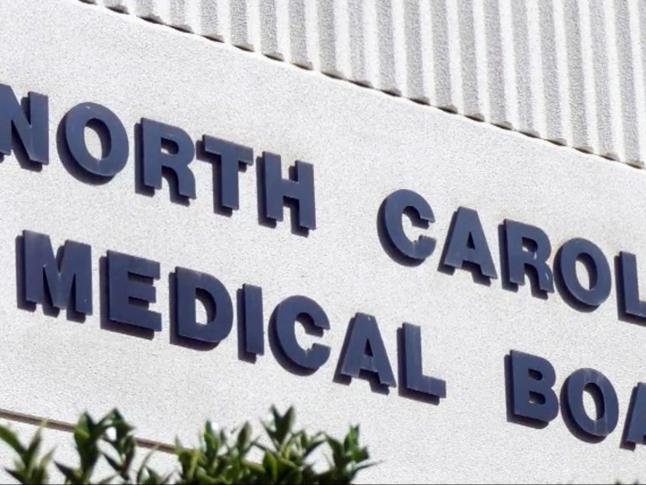This post was originally published on this site

Raleigh, N.C. — The North Carolina Medical Board and the North Carolina State Bar are tasked with making sure doctors and lawyers, respectively, follow codes of professional conduct. But when conduct goes from unprofessional to illegal, the cases aren’t always turned over to authorities.
“The vast majority of our cases are professional misconduct, but they do not go over into criminal misconduct,” said Brian Blankenship, legal counsel for the Medical Board.
WRAL Investigates found several examples where doctors were punished by the board, but law enforcement was never involved:
- A Goldsboro doctor was writing prescriptions to himself, even though he had been warned to stop that practice.
- A Winston-Salem doctor was stealing oxycodone from a patient during home visits.
- A Moore County doctor wrote multiple prescriptions for oxycodone, codeine and hydrocodone to three patients but diverted those pills to a family member.
- A Johnston County doctor used another physician’s name and Drug Enforcement Administration number to write prescriptions to a family member.
When we look at self-diversion, we have to look at how the doctor obtained the drugs,” Blankenship said. “The board in those cases is going to determine, is this an addiction problem that is best dealt with a good treatment and recovery program?”
The Medical Board used to send every misconduct case, from drug fraud to sex abuse, to prosecutors, but state lawmakers changed the law in 2007 to provide the board with more discretion.
“The statute used to say ‘shall,’ and it changed to ‘may,'” Blankenship said “One of the reasons it changed from ‘shall’ to ‘may’ is feedback we received from law enforcement that we were sending them too much.”
Now, the board makes decisions with the guidance of an 11-member investigative team, nine of whom come from law enforcement, he said.
“Rather than protect the profession, we want to appropriately regulate the profession,” he said.
But Suzanne Sykes said doctors and lawyers who cross the line need to be held accountable both by their professions and the justice system.
Sykes’ friend, Rob Byrd, was riding a bike in Wilmington in August 2013 when a speeding SUV hit and killed him. The attorney who handled Byrd’s wrongful death suit, Hugh McManus, wrongly took tens of thousands of dollars from the settlement.
“He was blatantly stealing,” Sykes said.
The State Bar took McManus’ license to practice in April after it found he had stolen from two other clients as well. In this case, the group also forwarded its findings to the State Bureau of Investigation, which is still reviewing the case.
But WRAL Investigates again found cases where lawyers who were disciplined by the State Bar never faced prosecution for their actions:
- A Durham lawyer “committed criminal acts” by working with a debt relief firm that wasn’t allowed to provide legal services in the state, according to a State Bar grievance committee.
- A Raleigh lawyer disbursed trust funds to himself.
- A Charlotte lawyer instructed a staff member to forge signatures on legal documents.
“The State Bar does not play a role in the decision whether an attorney will be criminally prosecuted,” State Bar legal counsel Katherine Jean said in a statement to WRAL News. “The State Bar does, however, regularly communicate with district attorney’s offices.”
The organization sends all disbarments and active suspensions to prosecutors but not censures or reprimands, Jean said.
“It’s quite a shame. It really is. There’s no justice,” Sykes said. “I’d hate that this would happen to somebody else.”
